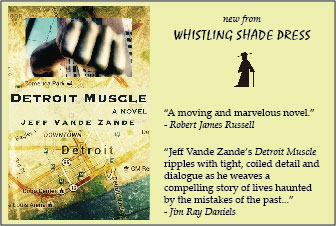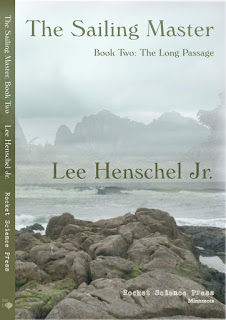
| <- Back to main page |

|
(Rocket Science Press)
Book two of Lee Henschel’s The Sailing Master series begins in 1798, and our narrator, young Owen Harriet, has been promoted from cabin boy to midshipman. His ship, Eleanor, is sent on a mission across the world, to the Mekong delta, where rumors have it our erstwhile villain, French officer Théophile Oignon, a.k.a. the Onion, is active promoting the cause of Napoleon. Many of Owen’s shipmates are also familiar from book one: his friends Hudson and Botherall, the bosun Ajax, and Lieutenants Hoyer and Lockhart. And of course there is the sailing master himself, Mr. Lau, who takes on a more fatherly role now that Captain Cedric, Owen’s uncle, is dead. New personalities are also introduced, many of them colorful: Eleanor’s new master, Captain Praether; an an aristocratic temptress named Lady Elspeth, who Owen meets while ashore in George Town; and a young Buddhist priest whom Owen refers to as Quay (no one knows Quay’s real name, as he has taken a vow of silence).

As with book one, Coming of Age, The Long Passage is episodic, resembling a true narrative rather than an intricately-plotted sea yarn. It’s also filled with 18th century sailing jargon, so that a reader will likely have to refer to the handy back page glossary rather often. This attention to period detail, however, makes the scenes of action come alive—such as Eleanor’s encounter with a French frigate, Hommage:
Hommage opened fire with her port battery. Once more the salvo threw high, for they meant to cause more damage aloft. The bar shot screamed through Eleanor’s rigging to part a downhaul on the forestaysail. A halyard failed and sheared off, luffing the top gallant yard.
“Starboard battery! Fire!”
I relayed the command most lively. Just three guns fired! I looked to Hommage to see if any round struck home. All three fell short.
Though weighing in at well under 300 pages, The Long Passage is a book of many parts; in Eleanor’s voyage around the world, Owen glimpses a number of seas and islands, witnesses a knife fight, hears Mozart, strolls a drawing room, and climbs high into the rigging to stop a fellow sailor from jumping. And part of one chapter, involving an escaped slave, appeared as a stand-alone story entitled “The Passenger” in the Fall/Winter 2016 Whistling Shade. At the heart of the book, however, is the Mekong Delta, where Owen has his first glimpse of the East:
Boat traffic plied steady between villages. Sampans, mostly, along with small junks and coracles. But after making upstream for two days, the river narrowed and ran dark green. The villages grew small and more isolated, finally replaced by low palms, with their fronds brushing on Krom as we slipped past. The air closed in and became fetid, smelling of rotted vegetation and fish. Soon we entered a stretch of tall reeds called Moi, named for the tribe that lived among them. Birds and monkeys, and perhaps even the Moi, called from deep cover as we made ever upstream.
The scene might be something out of Conrad, but Henschel instills the tale with his narrator’s youthful, simplistic viewpoint. If no carefully crafted theme of higher meaning can be discerned in the chaotic journey of The Long Passage, still the sheer joy of Owen’s life—sailing on a ship, traveling places, fighting Napoleon at the very height of the age of romantic gallantry—keeps the wind brisk and all sails filled.
- Joel Van Valin
if ((navigator.appName == "Netscape") && (parseInt(navigator.appVersion) <= 4)) { if (parseInt(navigator.appVersion) != 2) document.write(" ");}
else
{ document.write("
");}
else
{ document.write(" ");}
//-->
");}
//-->